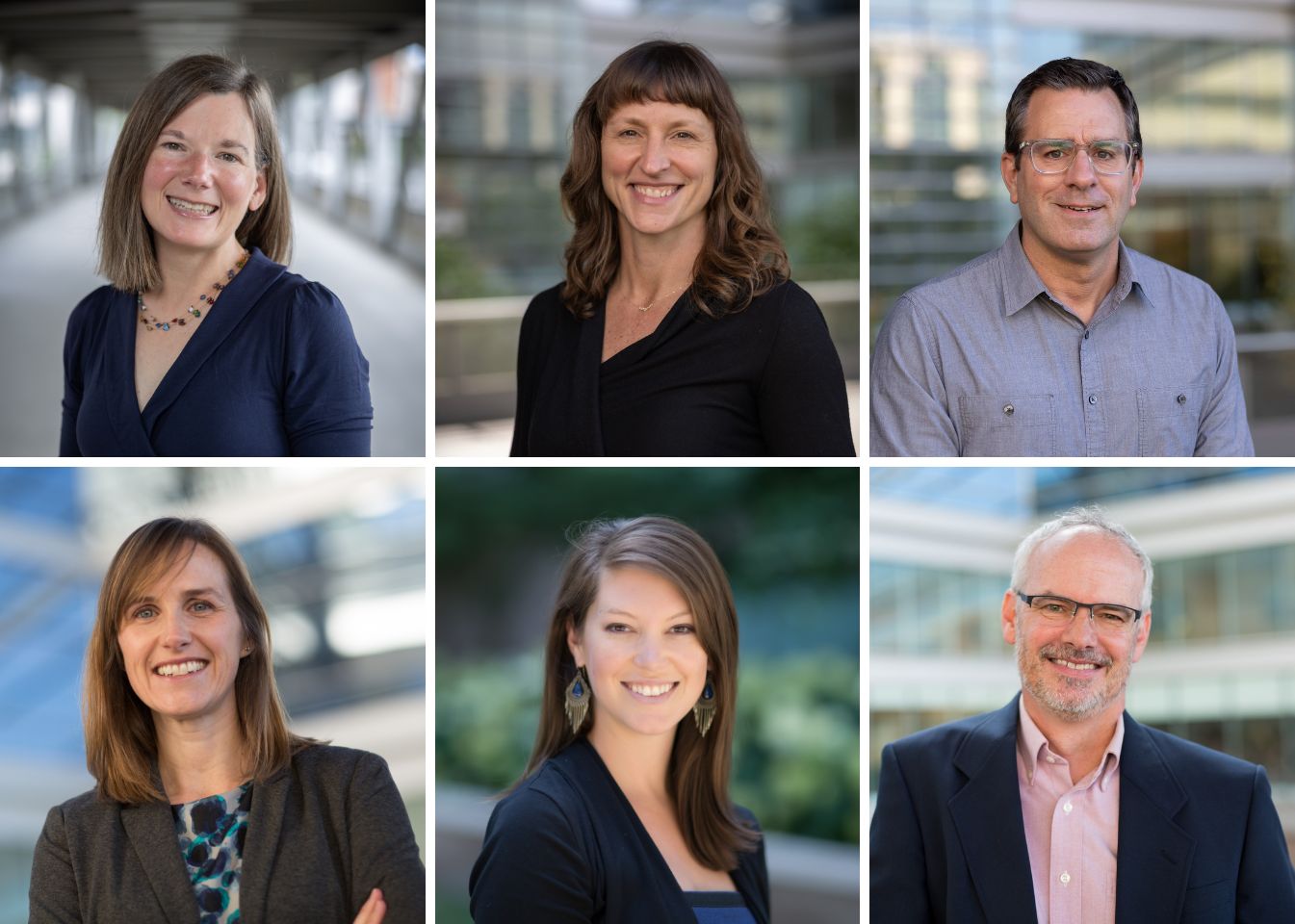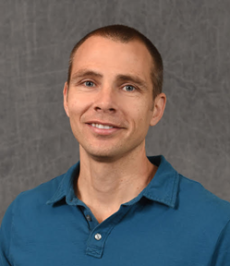Researchers receive $1.2 million grant to improve cancer screening tracking

[ad_1]
December 4, 2023
The American Cancer Society has awarded a five-year, $1.2 million Team Science grant to a group of UNC-Chapel Hill researchers who will develop new methods to measure and map cancer screening across North Carolina.

Top row, from left: Drs. Katherine Reeder-Hayes, Jenny Lund and Christopher Baggett; bottom row, from left: Drs. Louise Henderson, Stephanie Wheeler and Dan Reuland
Katherine Reeder-Hayes, MD, is the study’s lead principal investigator, and Jenny Lund, PhD, and Christopher Baggett, PhD, are the team principal investigators. These three faculty members co-direct the UNC Lineberger Cancer Information & Population Health Resource (CIPHR).
Other research team members include Louise Henderson, PhD, Stephanie Wheeler, PhD, Dan Reuland, MD, and Arrianna Marie Planey, PhD — all faculty with ties to the UNC Gillings School of Global Public Health, UNC’s School of Medicine, and/or the UNC Lineberger Comprehensive Cancer Center — as well as Brian Reich, PhD, from N.C. State University, and CIPHR staff.
The grant will fund research designed to facilitate more widespread cancer screening and early detection, culminating in reduced cancer mortality. Specifically, the researchers will use data from CIPHR to create new tools based on insurance claims that more efficiently measure and compare cancer screening use across small geographic areas and groups of people.

Dr. Arrianna Marie Planey

Dr. Brian Reich
The researchers also will work with community partners to transform these data into formats that are useful for a variety of audiences, including data visualizations and simulation models showing the potential effects of increased screening in certain geographic areas, for specific cancers and in particular patient groups for which screening currently is underused.
At the moment, cancer screening in the United States is tracked primarily using telephone surveys, which are expensive, time-consuming and miss many geographic areas.
“The existence of a cancer screening test in itself doesn’t save anyone’s life,” said Reeder-Hayes, associate professor of medicine and section chief of breast oncology at the UNC School of Medicine. “Early detection of cancer in people at highest risk, followed by prompt and appropriate treatment, are the steps that actually lead to less expensive, less difficult and more life-saving cancer treatment. For breast, colorectal and lung cancers, early detection through cancer screening absolutely saves lives — but we can’t use the tool effectively unless we know where we have gaps and focus our intervention efforts to those high-reward areas. Without detailed information about where and when screening is happening, we’re blind as to where the problems are and how to solve them.”
Screening tests also can help detect cancer at an early stage, improving the chances that treatment will be more effective, less burdensome and raise the odds of a patient’s survival.
Currently, Black Americans are less likely to complete a cancer screening, which contributes to longstanding disparities in the stage at diagnosis and rates of cancer survival for Black people. Racial differences in cancer screening patterns will be one major focus for the research team.
“The goal of our work is to develop efficient, low-cost methods that policy makers and health workers in any state could use to map cancer screening use, understand where it is lacking and work with affected communities to change that map,” Reeder-Hayes said. “Everyone deserves the opportunity to have their cancer caught early, to access the treatments that are right for them and to be able to say that they are a cancer survivor.”
Contact the UNC Gillings School of Global Public Health communications team at sphcomm@unc.edu.
[ad_2]
Source link
